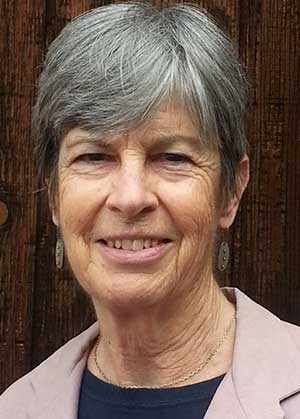Related Research Articles
The philosophy of education is the branch of applied philosophy that investigates the nature of education as well as its aims and problems. It also examines the concepts and presuppositions of education theories. It is an interdisciplinary field that draws inspiration from various disciplines both within and outside philosophy, like ethics, political philosophy, psychology, and sociology. Many of its theories focus specifically on education in schools but it also encompasses other forms of education. Its theories are often divided into descriptive theories, which provide a value-neutral description of what education is, and normative theories, which investigate how education should be practiced.

Pragmatism is a philosophical tradition that views language and thought as tools for prediction, problem solving, and action, rather than describing, representing, or mirroring reality. Pragmatists contend that most philosophical topics—such as the nature of knowledge, language, concepts, meaning, belief, and science—are all best viewed in terms of their practical uses and successes.

An academic discipline or field of study is a branch of knowledge, taught and researched as part of higher education. A scholar's discipline is commonly defined by the university faculties and learned societies to which they belong and the academic journals in which they publish research.
Susan Haack is a distinguished professor in the humanities, Cooper Senior Scholar in Arts and Sciences, professor of philosophy, and professor of law at the University of Miami in Coral Gables, Florida.

Applied philosophy is a branch of philosophy that studies philosophical problems of practical concern. The topic covers a broad spectrum of issues in environment, medicine, science, engineering, policy, law, politics, economics and education. The term was popularised in 1982 by the founding of the Society for Applied Philosophy by Brenda Almond, and its subsequent journal publication Journal of Applied Philosophy edited by Elizabeth Brake. Methods of applied philosophy are similar to other philosophical methods including questioning, dialectic, critical discussion, rational argument, systematic presentation, thought experiments and logical argumentation.
Sandra G. Harding is an American philosopher of feminist and postcolonial theory, epistemology, research methodology, and philosophy of science. She directed the UCLA Center for the Study of Women from 1996 to 2000, and co-edited Signs: Journal of Women in Culture and Society from 2000 to 2005. She is currently a Distinguished Professor Emeritus of Education and Gender Studies at UCLA and a Distinguished Affiliate Professor of Philosophy at Michigan State University. In 2013 she was awarded the John Desmond Bernal Prize by the Society for the Social Studies of Science (4S).
Marilyn Frye is an American philosopher and radical feminist theorist. She is known for her theories on sexism, racism, oppression, and sexuality. Her writings offer discussions of feminist topics, such as: white supremacy, male privilege, and gay and lesbian marginalization. Although she approaches the issues from the perspective of justice, she is also engaged with the metaphysics, epistemology, and moral psychology of social categories.

Helen Elizabeth Longino is an American philosopher of science who has argued for the significance of values and social interactions to scientific inquiry. She has written about the role of women in science and is a central figure in feminist epistemology and social epistemology. She is the Clarence Irving Lewis Professor of Philosophy at Stanford University. In 2016, she was elected to the American Academy of Arts and Sciences.
Feminist epistemology is an examination of epistemology from a feminist standpoint.

Richard Jacob Bernstein was an American philosopher who taught for many years at Haverford College and then at The New School for Social Research, where he was Vera List Professor of Philosophy. Bernstein wrote extensively about a broad array of issues and philosophical traditions including American pragmatism, neopragmatism, critical theory, deconstruction, social philosophy, political philosophy, and hermeneutics.
American philosophy is the activity, corpus, and tradition of philosophers affiliated with the United States. The Internet Encyclopedia of Philosophy notes that while it lacks a "core of defining features, American Philosophy can nevertheless be seen as both reflecting and shaping collective American identity over the history of the nation". The philosophy of the Founding Fathers of the United States is largely seen as an extension of the European Enlightenment. A small number of philosophies are known as American in origin, namely pragmatism and transcendentalism, with their most prominent proponents being the philosophers William James and Ralph Waldo Emerson respectively.

Paul K. Chappell is an American activist. He is the Director of the Peace Literacy Institute. A graduate of West Point and a veteran of the war in Iraq, he created the idea of Peace Literacy after his time in the military. He develops the idea further in his seven-book series The Road to Peace where he writes about waging peace, ending war, the art of living, and what it means to be human.
Feminist political theory is an area of philosophy that focuses on understanding and critiquing the way political philosophy is usually construed and on articulating how political theory might be reconstructed in a way that advances feminist concerns. Feminist political theory combines aspects of both feminist theory and political theory in order to take a feminist approach to traditional questions within political philosophy.

Elizabeth Secor Anderson is an American philosopher. She is Arthur F. Thurnau Professor and John Dewey Distinguished University Professor of Philosophy and Women's Studies at the University of Michigan and specializes in political philosophy, ethics, and feminist philosophy.
Lorraine Code is Professor Emerita of Philosophy at York University in Toronto, Ontario, Canada and a Fellow of the Royal Society of Canada. Her principal area of research is feminist epistemology and the politics of knowledge.
Carla Fehr is an associate professor of philosophy at the University of Waterloo where she holds the Wolfe Chair in Scientific and Technological Literacy.

Miriam Solomon is Professor of Philosophy and Chair of the Philosophy Department as well as Affiliated Professor of Women's Studies at Temple University. Solomon's work focuses on the philosophy of science, social epistemology, medical epistemology, medical ethics, and gender and science. Besides her academic appointments, she has published two books and a large number of peer reviewed journal articles, and she has served on the editorial boards of a number of major journals.

The New York University Department of Philosophy offers B.A., M.A., and Ph.D. degrees in philosophy, as well as a minor in philosophy and a joint major in language and mind with the NYU Departments of Linguistics and Psychology. It is home to the New York Institute of Philosophy, a research center that supports multi-year projects, public lectures, conferences, and workshops in the field, as well as outreach programs to teach New York City high school students interested in philosophy.
Nancy Tuana is an American philosopher who specializes in feminist philosophy. She holds the DuPont/Class of 1949 Professorship in Philosophy and Women's Studies at The Pennsylvania State University. She came to Penn State from the University of Oregon in 2001 to serve as the founding director of the Rock Ethics Institute. She won the 2022 Victoria Davion Award.

Feminist philosophy of science is a branch of feminist philosophy that seeks to understand how the acquirement of knowledge through scientific means has been influenced by notions of gender identity and gender roles in society. Feminist philosophers of science question how scientific research and scientific knowledge itself may be influenced and possibly compromised by the social and professional framework within which that research and knowledge is established and exists. The intersection of gender and science allows feminist philosophers to reexamine fundamental questions and truths in the field of science to reveal how gender biases may influence scientific outcomes. The feminist philosophy of science has been described as being located "at the intersections of the philosophy of science and feminist science scholarship" and has attracted considerable attention since the 1980s.
References
- ↑ "Sharyn Clough". School of History, Philosophy, and Religion, College of Liberal Arts. OSU. Retrieved 2016-11-30.
- ↑ "Phronesis Lab: Experiments in Engaged Ethics". Oregon State University Blog. Retrieved 2021-09-11.
- ↑ "Peace Literacy Institute, Our Team: Sharyn Clough". Peace Literacy Institute. Retrieved 2021-09-11.
- ↑ "Sharyn Clough". School of History, Philosophy, and Religion, College of Liberal Arts. OSU. Retrieved 2021-09-11.
- ↑ Clough, Sharyn (2011). "Gender and the Hygiene Hypothesis". Social Science & Medicine. 72 (4): 486–493. doi:10.1016/j.socscimed.2010.11.021. PMID 21195519.
- ↑ "Are girls too clean for their own good?". Independent. Retrieved 2021-09-11.
- ↑ "Cleanliness of girls may up asthma risk". United Press International. 2011-02-03. Retrieved 2021-09-11.
- ↑ "Why keeping little girls squeaky clean could make them sick". NPR, Whitney Blair Wyckoff. 2011-02-03. Retrieved 2021-09-11.
- ↑ "Dirty little girls may turn into healthier women". NPR, Patt Morrison. 2011-02-03. Retrieved 2021-09-11.
- ↑ "Sharyn Clough". School of History, Philosophy, and Religion, College of Liberal Arts. OSU. Retrieved 2021-09-11.
- ↑ "Philosophy Talk (Live Taping) 'Science and Politics: Friends or Foes?'". YouTube. 2015-07-08. Archived from the original on 2021-12-13. Retrieved 2016-11-30.
- ↑ "Interview with Sharyn Clough". Engaged Philosophy: Civic Engagement in Philosophy Classes. 2018-01-09. Retrieved 2021-09-11.
- ↑ "What Can Philosophy Bring to Science and Society?". The Corvallis Advocate. 2017-10-11.
- ↑ "OSU faculty and students teach philosophy tools to College Hill students". Gazette Times. 2014-04-28. Retrieved 2021-09-11.